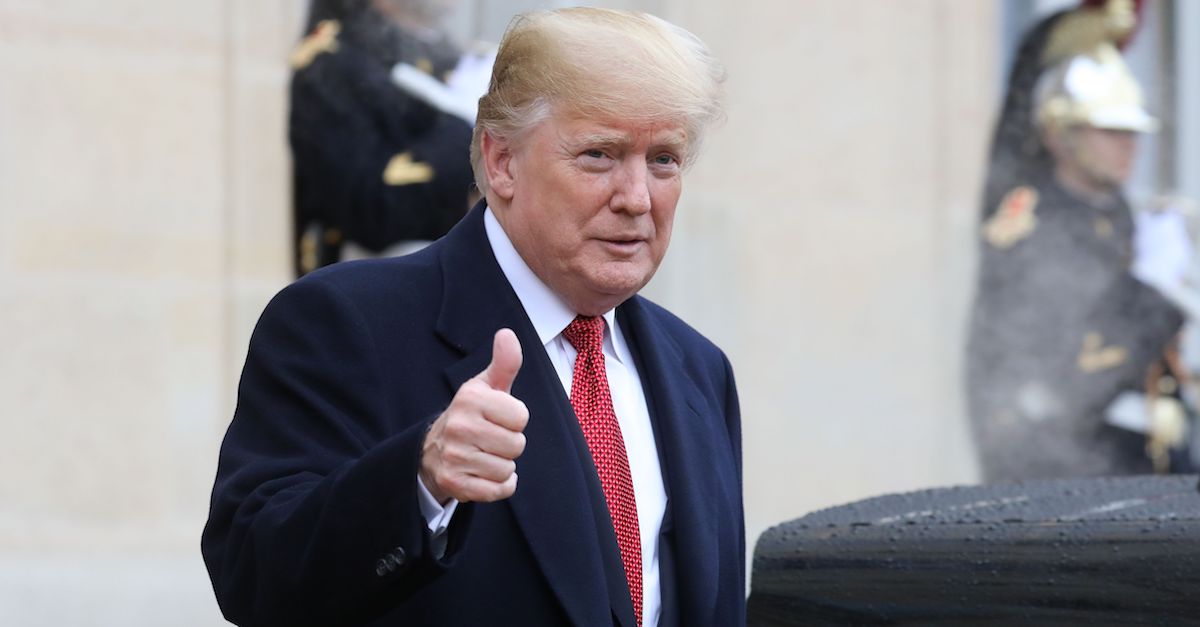
The Trump Administration plans to designate Iran’s Revolutionary Guard Corps (IRGC)–a branch of the Islamic Republic’s armed forces–a so-called “foreign terrorist organization” under a process used by the U.S. Department of State. The authority for such designations is codified at §219 of the Immigration and Nationality Act and has long been used by the State Department to fight terrorism and isolate political enemies.
The administration’s use of the designation against the IRGC, however, is controversial in at least two respects: (1) it’s an unprecedented use of the power against a sovereign nation’s armed forces; and (2) a former President Trump’s own family business reportedly has ties to Iran’s suddenly verboten elite military and intelligence organization through a former business partner.
Courthouse News reporter Adam Klasfeld noted the connection.
“Trump Tower Baku’s business partners reportedly had ties to the IRGC,” Klasfeld tweeted late Monday afternoon. “Trump’s attorney Rudy Giuliani represented the man convicted of the biggest money laundering scheme to Iran in U.S. history, benefiting the IRGC-linked [National Iranian Oil Company].”
According to RAND Corporation analyst and Iran scholar William Young, the IRGC is “linked” to Iran’s state-owned oil company in a fairly innocuous fashion. That is, by way of the IRGC’s civil engineering arm–Khātam al-Anbiyā–which, like all firms seeking oil contracts in Iran, must be approved by the state oil company. Young notes that the IRGC’s powerful equivalent of the U.S. Army Corps of Engineers has received in excess of 51 such oil contracts as of 2012.
But back to Baku–and a more direct Trump connection to the IRGC.
According to the New Yorker, Trump International Hotel and Tower Baku, an empty luxury building oddly sitting in one of the poorest neighborhoods of Azerbaijan’s capital city, was developed due to the relationship between the Trump family and Azerbaijan’s Transportation Minister Ziya Mammadov as well as his son, Anar Mammadov. The younger Mammadov was Trump’s business partner in the deal.
The Mammadovs–Ziya’s brother Elton Mammadov was formerly a member of the nation’s parliament–have been described as “oligarchs.” And it’s widely assumed that Trump and Anar Mammadov were only able to secure their deal through the family’s role in the country’s government.
The Trump Organization’s chief legal officer, Alan Garten, disputed even the notion that any ethical issues surround Trump’s own involvement with the deal because he allegedly never dealt directly with the Mammadov family.
Per Adam Davidson‘s New Yorker report:
According to Garten, Trump played a passive role in the development of the property: he was “merely a licensor” who allowed his famous name to be used by a company headed by Ziya Mammadov’s son, Anar, a young entrepreneur.
Garten also once told the Washington Post that Trump “invested virtually no money in the project while selling the rights to use his name and holding the contract to manage the property.”
In an interview with Davidson, however, Garten appeared to acknowledge that some amount of corruption enabled the project to come to fruition.
“I’m not going to sit here and defend the Mammadovs,” he said–while insisting that Trump’s own legal culpability was nil. “We had no equity. We didn’t control the project. The flow of funds is in the wrong direction.”
Another flow of funds involving the Mammadovs is likely to be subject to extreme scrutiny due to Trump’s recent decision against the IRGC.
Again, the New Yorker:
The available evidence strongly suggests that Ziya Mammadov conspired with an agent of the Revolutionary Guard to make overpriced deals that would enrich them both while allowing them to flout prohibitions against money laundering and to circumvent sanctions against Iran.
The suggestion is that some of the money laundering allegedly carried out by the Mammadov family used some of the dozens of construction contracts that went into construction of the unused tower that bears the 45th president’s name. As of now, however, that’s simply speculation.
[Image via LUDOVIC MARIN/AFP/Getty Images]